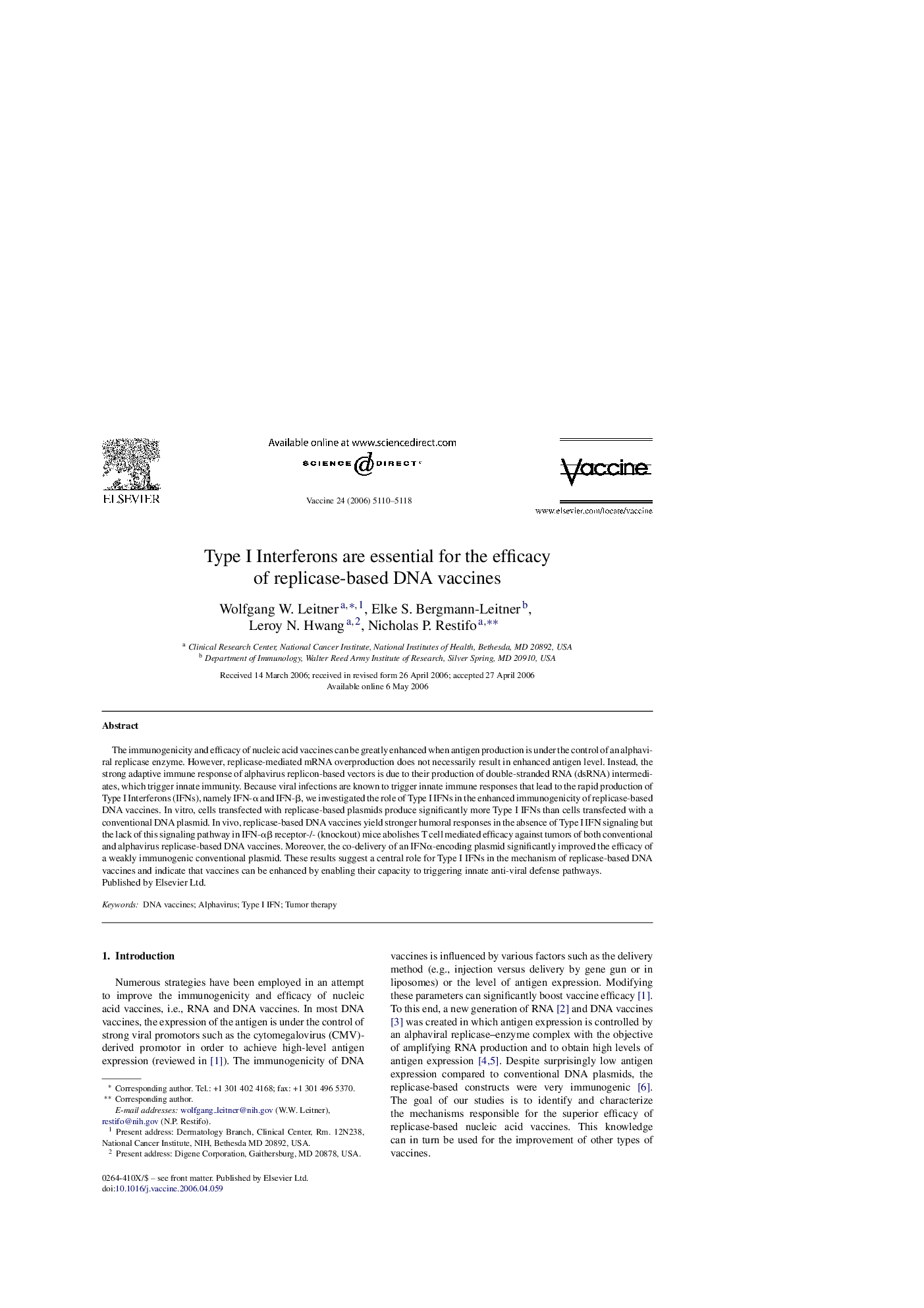| Article ID | Journal | Published Year | Pages | File Type |
|---|---|---|---|---|
| 2410205 | Vaccine | 2006 | 9 Pages |
The immunogenicity and efficacy of nucleic acid vaccines can be greatly enhanced when antigen production is under the control of an alphaviral replicase enzyme. However, replicase-mediated mRNA overproduction does not necessarily result in enhanced antigen level. Instead, the strong adaptive immune response of alphavirus replicon-based vectors is due to their production of double-stranded RNA (dsRNA) intermediates, which trigger innate immunity. Because viral infections are known to trigger innate immune responses that lead to the rapid production of Type I Interferons (IFNs), namely IFN-α and IFN-β, we investigated the role of Type I IFNs in the enhanced immunogenicity of replicase-based DNA vaccines. In vitro, cells transfected with replicase-based plasmids produce significantly more Type I IFNs than cells transfected with a conventional DNA plasmid. In vivo, replicase-based DNA vaccines yield stronger humoral responses in the absence of Type I IFN signaling but the lack of this signaling pathway in IFN-αβ receptor-/- (knockout) mice abolishes T cell mediated efficacy against tumors of both conventional and alphavirus replicase-based DNA vaccines. Moreover, the co-delivery of an IFNα-encoding plasmid significantly improved the efficacy of a weakly immunogenic conventional plasmid. These results suggest a central role for Type I IFNs in the mechanism of replicase-based DNA vaccines and indicate that vaccines can be enhanced by enabling their capacity to triggering innate anti-viral defense pathways.
